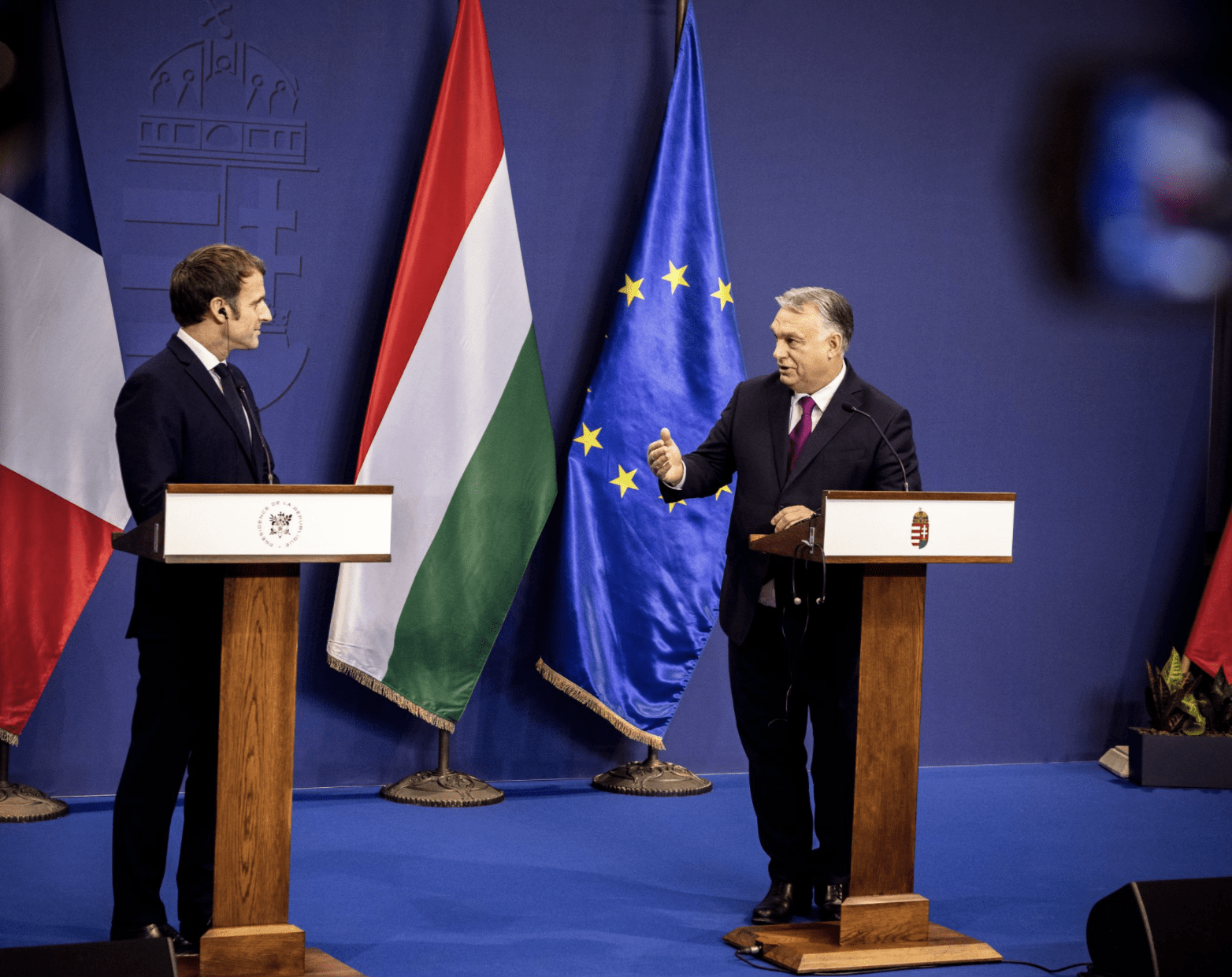
On Monday, French President Emmanuel Macron, while on a visit to Hungary’s capital, held a press conference with representatives of the Visegrad countries (the so-called V4), Hungarian periodical Heti Világgazdaság reports.
While he has a history of denouncing certain policies of the Hungarian government, Macron last week said he regarded Prime Minister Viktor Orbán as a political opponent but also as a European partner. Macron made a public demonstration of disapproval of Orbán’s ideology at the start of his trip to Budapest when he laid a wreath at the tomb of Agnes Heller, a Hungarian philosopher who opposed Orbán.
With Prime Minister Orbán serving as host, Macron engaged him, Czech Prime Minister Andrej Babiš, Polish Prime Minister Mateusz Morawiecki, and Slovakian Prime Minister Eduard Heger on urgent topics relevant to the nations of all parties involved.
During the conference, Orbán brought up Macron’s intention to assume the mantle of the European Union’s presidency next year. A discussion described as “passionate” ensued after this disclosure, followed by “thorough and exhaustive” talks about the rule of law concerning migration. The five leaders also discussed the issue of energy—nuclear power in particular—as well as the future of the EU’s emissions trading system (ETS), Orbán added.
The Prime Minister went on to say it was a “rare opportunity” for the five of them to be able to “speak openly about such important issues.” Orbán thanked Macron on behalf of the V4 for his openness and vision, and for having given the central European grouping the chance to contemplate and anticipate the most important goals of the French EU presidency.
In his speech, Emmanuel Macron reiterated the multiple crises the European Union is experiencing, among which the new migrant situation along Poland’s border was specified. Under a French presidency, he stated, the controversial Schengen system would receive profound reform, including a review of the rules on external border protection and migrant removal to the country of origin.
While acknowledging the sensitive issue of national versus supranational rule of law, a tension which has pitted nation states against the EU in the past and the present, Macron stressed that the fight against discrimination and the protection of minorities was an existential issue for the EU.
Macron also spoke on energy strategy, mentioning that extending the emissions trading system to households is important to France. “The right solution needs to be found for both industry and households, so that neither is too much of a burden,” he explained.
Slovakian Prime Minister Heger also spoke about the challenges facing the EU, including the climate crisis. “Carbon neutrality should not be let go of,” he said, “but in the meantime people would need to think about safety and what they can handle. When formulating goals, the social aspects must also be taken into account. We have a difficult time ahead, but the V4s will help the Union strengthen its global position,” he added.
Czech Prime Minister Babis expressed his conviction that V4 cooperation, a strong bloc within the EU, is vital and that it is in all member states’ interest that it prospers.
Speaking about migration, he pointed to seven member states who recently asked the European Commission to renegotiate migration policy. “I am pleased that more countries have adopted our position on the issue of illegal migration, and that this will be an issue during the French Presidency,” he said.
In his speech, Polish Prime Minister Morawiecki drew attention to, among other things, the high price of gas and its “manipulation,” especially by Russian oil and gas company Gazprom, and expressed concern about the Emissions Trading System (ETS), highlighting the inflationary effect it could elicit.
On migration, he said Poland is currently protecting the EU’s eastern-NATO border, essential in the prevention of human trafficking and that migrants are used as “living shields,” the latter of which he holds Belarusian President Lukashenko responsible for.
Despite the apparent conviviality between Macron and Orbán, later that same day Macron met with leaders of the opposition alliance that is set to challenge Orbán in next year’s election.
In the past two months, Orbán has received leaders of the right such as Marine Le Pen and the fledgling politician Éric Zemmour, both candidates in France’s presidential election next year in which Macron is expected to seek a second term.
Both praised Orbán’s opposition to immigration, while Zemmour hailed his defense of “his country’s identity, sovereignty and borders.”
